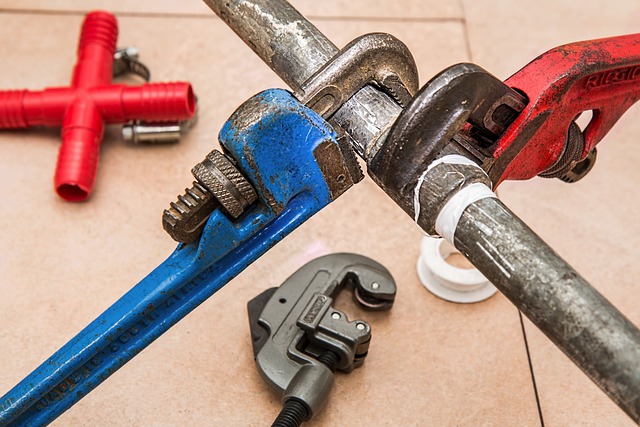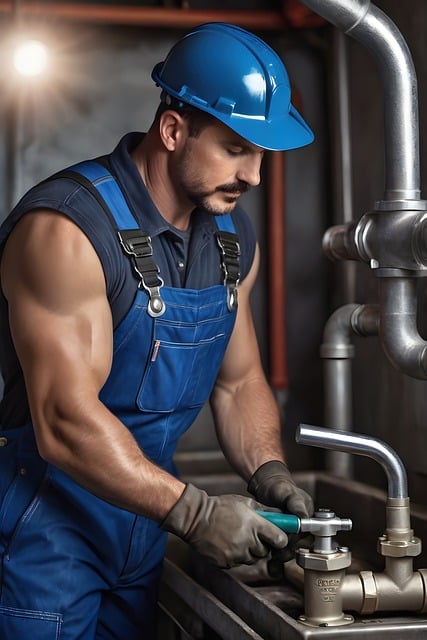When engaging in plumbing work, professional plumbers must be well-versed in the intricacies of local codes and regulations to guarantee public health and safety. These standards, enforced by municipal authorities, dictate all aspects of plumbing installations from material choice to operational protocols. Plumbers must stay current with code updates due to technological advancements, environmental considerations, and shifts in population density or water usage. Homeowners and property managers should hire licensed plumbers proficient in these regulations to avoid costly retrofits and ensure legal compliance. Compliance isn't just a legal requirement but also indicative of high-quality, responsible plumbing work that prioritizes safety and efficiency. Plumbers must apply their knowledge continuously through education and staying informed about new regulations, ensuring their services are up to code for both current and future needs. This commitment to compliance is crucial in maintaining safe, functional plumbing systems within residential and commercial properties, providing property owners with the assurance that their systems meet all legal and safety standards.
When it comes to the integrity of your home’s plumbing system, adherence to local codes and regulations is not just a suggestion—it’s a necessity. This comprehensive guide delves into the critical aspects of ensuring that all plumbing installations and repairs meet the stringent standards set forth by local jurisdictions. From understanding the intricacies of plumbing codes to recognizing the importance of hiring licensed professionals, we explore the key steps for compliance, common pitfalls to avoid, and the role of technology in maintaining code-compliant systems. Homeowners will find valuable tips for upholding these standards over time, and contractors will appreciate insights on navigating updates and permit requirements. Dive into this informative article to safeguard your property’s value and ensure the safety and efficiency of your plumbing system.
- Understanding Local Plumbing Codes and Regulations
- The Role of a Professional Plumber in Code Compliance
- Key Steps to Ensure Plumbing Meets Local Standards
Understanding Local Plumbing Codes and Regulations

When engaging in plumbing projects, it is imperative to have a comprehensive understanding of local codes and regulations. These guidelines are established by local government bodies and are designed to ensure public health, safety, and welfare. A skilled plumber must be well-versed in these standards as they dictate the materials used, installation methods, and operational practices that comply with hygiene and structural integrity requirements. These codes evolve over time to adapt to new technologies, address environmental concerns, and reflect changes in population density or water usage patterns. For homeowners and property managers, consulting with a licensed plumber who is familiar with these regulations is crucial for successful compliance. This not only avoids costly amendments after the fact but also ensures that all plumbing work meets the necessary safety benchmarks and legal requirements. Regular updates to local codes underscore the importance of staying informed, as adherence is a critical aspect of responsible plumbing practice. By doing so, any plumbing project can be executed efficiently, safely, and in compliance with the law.
The Role of a Professional Plumber in Code Compliance

In maintaining a safe and functional residential or commercial plumbing system, professional plumbers play a critical role in ensuring code compliance. Their expertise extends beyond mere repair and installation; it encompasses a thorough understanding of local, state, and federal regulations governing plumbing systems. These regulations are designed to protect public health and safety, and professional plumbers are adept at interpreting and applying these codes to every job they undertake. They meticulously assess existing plumbing infrastructure, make necessary modifications, and perform installations in strict adherence to the latest plumbing standards. This commitment to compliance is not only a legal requirement but also a safeguard against potential hazards such as water contamination, gas leaks, and structural damage due to water intrusion. By partnering with professional plumbers, property owners can rest assured that their plumbing systems are not only functional but also legally compliant, thereby avoiding costly fines and ensuring the long-term integrity of their investments.
The integration of technology and ongoing education further enhances the role of a professional plumber in code compliance. Utilizing advanced diagnostic tools and software, these experts can pinpoint issues with precision, ensuring that any work performed is up to code. Continuous training and staying abreast of new regulations are essential components of a professional plumber’s commitment to their trade. This proactive approach not only facilitates adherence to current codes but also anticipates future changes, positioning these professionals as invaluable assets in the realm of building maintenance and new construction projects. Homeowners and businesses alike benefit from the peace of mind that comes with knowing their plumbing systems are in full compliance with all relevant laws and safety standards.
Key Steps to Ensure Plumbing Meets Local Standards

When ensuring that all plumbing installations meet local codes and regulations, a meticulous approach is necessary. The first step involves thorough familiarization with the specific codes and standards set forth by local municipalities. This requires a plumber to consult detailed documentation outlining the requirements for plumbing systems within the jurisdiction. These guidelines cover everything from material selection to the design and installation of fixtures, pipes, and ventilation systems. A plumber must also stay abreast of any updates or changes to these regulations, as they can evolve over time to address new technologies, safety concerns, and environmental considerations.
Once the local codes are understood, the next critical step is the comprehensive planning and design phase. Here, a skilled plumber will draft plans that not only align with local standards but also optimize functionality and efficiency. The design must account for factors such as water pressure, flow rates, drainage gradients, and the capacity to handle expected loads without compromising safety or performance. This phase also includes selecting appropriate materials that comply with code requirements, ensuring they are sourced from reputable suppliers. Throughout the installation process, the plumber must adhere to these plans and continuously verify each step against local codes, performing necessary adjustments on-site to ensure compliance. Regular inspections by building officials are a standard part of this process, and passing these inspections is crucial for project advancement and occupancy. By following these key steps diligently, a plumber can guarantee that every plumbing installation is not only functional but also upholds the highest standards of safety and quality as dictated by local codes and regulations.
When it comes to plumbing systems, adherence to local codes and regulations is paramount for safety, efficiency, and compliance. This article has highlighted the importance of understanding these requirements, the role of professional plumbers in ensuring code compliance, and the critical steps needed to meet local standards. By leveraging the expertise of qualified plumbers and staying informed about evolving regulations, homeowners and businesses can safeguard their investments and promote public health. It is through diligent attention to these details that we maintain the integrity of our plumbing infrastructure and protect our communities.
